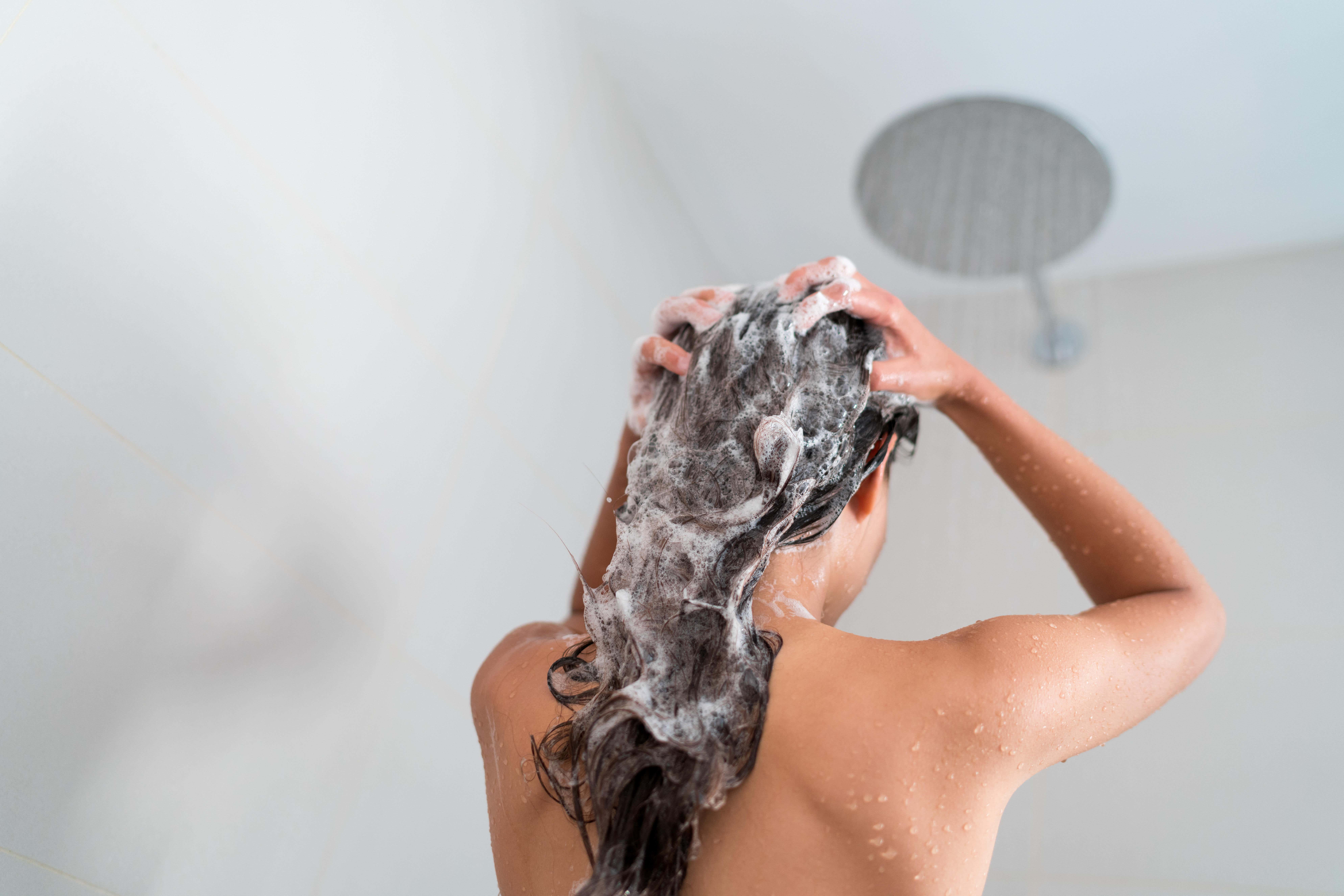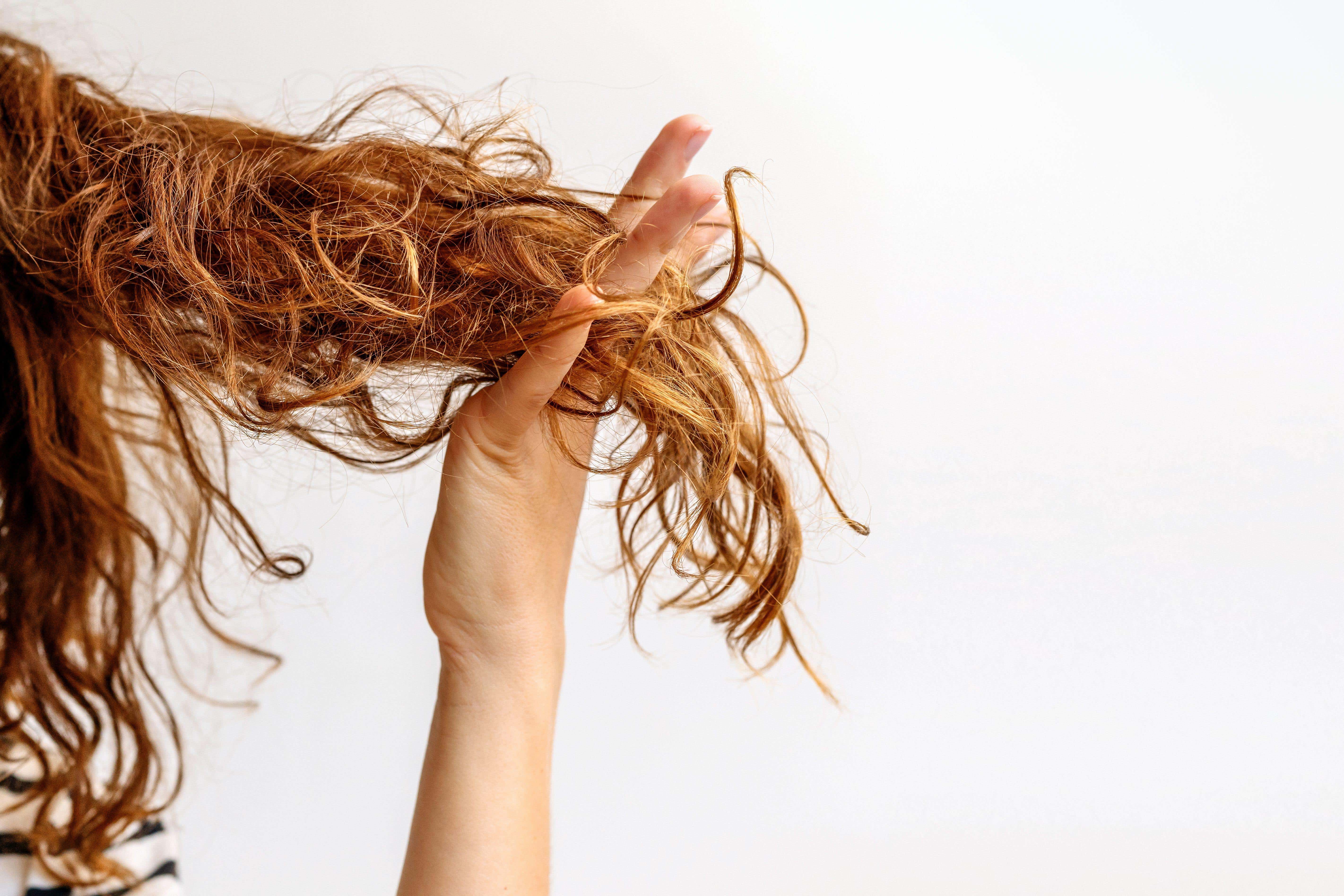Where has the hardest water in the UK and what you can do about it
The areas with hard water have been revealed

Does your skin feel dry and dehydrated, or your hair more brittle and damaged than usual? It is possible that hard water is to blame.
Hard water has a high mineral content that can negatively impact both your hair and skin, and is more dangerous for people with particularly sensitive skin, as “hard water can exacerbate existing issues like irritation, itching, or redness,” says Krasnaya.
The majority of the south and east of England has hard water, so there’s a chance it could be impacting you without you even realising.
According to electric water conditioner ScaleGuard the following cities have the hardest water in the country:
Bath, Bristol, Guildford, Hemel Hempstead, Milton Keynes, Oxford, Reading, Slough, Swindon, Walton-on-Thames.
Dermatologist Dr Yulia Krasnaya from Evolution Aesthetics Clinic explains that “hard water can leave several signs on your skin, indicating potential damage. One common sign is dryness or tightness after washing, as hard water can strip away natural oils, leaving the skin feeling parched.
“You may notice a dull or lacklustre complexion, as mineral deposits from hard water can build up on the skin’s surface, hindering its natural radiance.”
Aside from your skin and hair, there is another way to tell if you have hard water in your home. “Another indication is the presence of residue or soap scum, especially noticeable in areas like the sink or bathtub, which can signal hard water’s effect on the skin and surfaces,” says Krasnaya.

Although it isn’t particularly dangerous for your health, “prolonged exposure to hard water may also contribute to a compromised skin barrier, making it more susceptible to environmental stressors and moisture loss,” explains Krasnaya. So it pays to know just how to deal with the fall out – and how to make your hair and skin healthy again.
Anabel Kingsley, consultant trichologist and brand president at Philip Kingsley, explains that “hard water minerals can build up on the hair shaft, and so living in or travelling to a hard water area can impact how your strands look, feel and behave.
“Many people notice their hair is dryer when they shampoo with hard water, that it frizzes more easily, lacks shine and that not as much lather is created. It can also affect the colour of your hair, especially if you have highlighted or bleached strands,” she explains. If you have noticed any of these characteristics in your hair, it’s likely hard water is the culprit.
However, if you have experienced any of these symptoms in your hair and skin, there are several steps you can take to combat the damage and improve your hair and skin health.
Install a shower filter
Installing a shower filter is one of the simplest ways to minimise the impacts of hard water on both hair and skin. Prevention is always preferable to a cure, and this will help to filter the irritants out of the water you shower in.
Kingsley recommends a shower filter “if you find your hair is dry, dull, less manageable and lacklustre when shampooing with hard water.” Krasnaya also notes that “incorporating a water softener or installing a shower filter can significantly reduce the mineral content in hard water, making it gentler on the skin.”
Use a pre-shampoo conditioning treatment
Kingsley also recommends you use a conditioning treatment one to two times a week. “This plumps the hair shaft with moisture and seals the outer cuticle, creating shine and improving manageability.”
Use a gentle cleanser
“Using a gentle, pH-balanced cleanser can help minimise stripping of natural oils while effectively removing impurities,” says Krasnaya. Using anything that is too harsh for your skin will only cause further irritation and discomfort, and make the symptoms of hard water damage far worse.
Apply a smoothing oil or serum
“To combat frizz, apply a lightweight smoothing oil or serum before styling,” suggests Kingsley. Oils can also help to protect against heat and minimise flyaways, so they’re worth adding to your haircare routine even if you’re not directly looking to fight against frizziness.
Consider swapping your usual conditioner out for a richer one
If your hair is crying out for moisture due to hard water, a simple swap to a more heavy-duty conditioner could do the trick. To allow your conditioner to work at its best, towel dry your hair after shampooing and apply the conditioner to damp hair.
Invest in hydrating skincare
“Hydrating skincare products containing ingredients like hyaluronic acid, ceramides or niacinamide can help replenish moisture and strengthen the skin barrier, combating dryness and sensitivity caused by hard water,” says Krasnaya.
Products
Five products to help with hard water damage
Hello Klean Shower Filter, £65
Philip Kingsley Vitamin C Jelly Detoxifying Hair & Scalp Treatment, £30
Philip Kingsley Elasticizer Therapies Sicilian Lemon & Bergamot, £24
Weleda Skin Food, £14.95
Sanctuary Spa Signature Natural Oils Whipped Soufflé Body Cream, £13, Boots
Use a detoxifying hair and scalp treatment
“I love our Vitamin C Jelly, which removes hard water mineral deposits on your hair,” says Kingsley. If your hair needs some real TLC, this might be the most effective solution for you.
Before you switch up your whole haircare routine, be sure to check what your hair type actually requires. “There’s no need to change your shampoo – stick to one formulated for your hair texture,” says Kingsley.
Although it is tricky to totally get rid of all hard water damage in your hair and skin without relocating to an area with soft water (not a realistic change for most of us), making small changes in your daily routine can help to make any symptoms less noticeable and more manageable day-to-day.
Bookmark popover
Removed from bookmarks